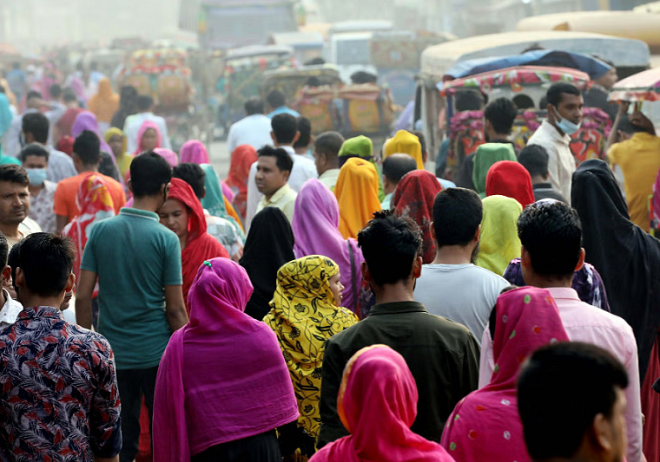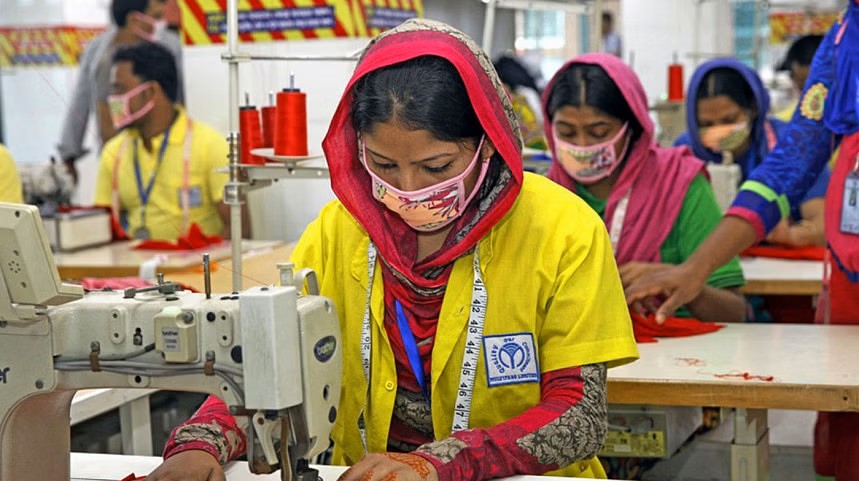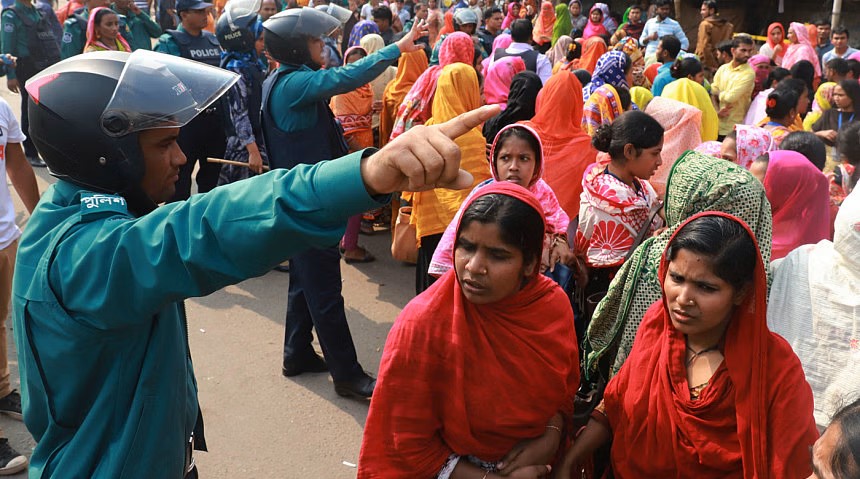Bangladesh under EU pressure to enhance workers’ facilities
Despite Bangladesh making amendments to several sections of the Bangladesh Labor Act-2006 (Amendment-2018) based on recommendations from Western communities, particularly the European Union (EU), dissatisfaction remains.
The EU has expressed concerns and demanded further facilities for workers, threatening a potential ban on Bangladesh from the Everything But Arms (EBA) facility under the Generalised System of Preferences (GSP) programme if amendments are not made.
In mid-November, an EU delegation visited Bangladesh to assess workers’ rights progress and evaluate labour law amendments.
During their visit, the delegation met with various stakeholders, including the Bangladesh Garment Manufacturers and Exporters Association (BGMEA) on November 14. One of the participants of the meeting said that during the one-and-half-hour meeting, the EU delegation condemned recent violence in the RMG sector, which left at least four workers killed and hundreds injured as well as over a hundred workers sent to jail.
BGMEA President Faruque Hassan told The Business Post that the EU team provided a roadmap and recommendations on labour law amendments, focusing on issues such as child labour, the EPZ labour act, trade union formation, and general labour rights.
“They also said that though there is no child labour in the RMG sector other sectors are still recruiting underage people. If it continues, they likely to eliminate Bangladesh from the GSP policy,” Faruque said. He added that Bangladesh is gradually improving labour rights, and the RMG sector is fully following ILO and labour law.
Diplomatic sources confirmed The Business Post that the EU officials came to Bangladesh as part of a regular monitoring mission to assess compliance with conditions for the EBA trade regime. Bangladesh is a key priority for the EU, with significant annual business, and it is a leading beneficiary under the GSP EU’s external action service director Paola Pampaloni, the head of the delegation, told The Business Post that they came to Bangladesh to deal with trade and employment issues. “The labour condition and the implementation of the ILO convention, which are included in our GSP regulation,” she said putting emphasis on the importance of the EBA trade regime and discussing labour law amendments with various stakeholders, including BGMEA.
She mentioned past negotiations on a national action plan, highlighting delays in implementing commitments, particularly in the labour legislation reform programme. The EU’s visit is timely, considering the upcoming new GSP policy for the 2024-34 tenure.
The EU delegation’s visit coincided with workers’ unrest in the RMG sector, demanding a decent minimum wage amid skyrocketing inflation. The demonstrations turned violent, resulting in casualties, injuries, and arrests. The EU had previously recommended 16 amendments to the Labour Act, and the government had committed to addressing several points, including easier trade union formation and increased maternity leave.
In the face of workers’ demonstrations, dozens of factories announced closure under the Labour Act’s section 13/1, which means ‘no work, no pay’, and the government deployed 48 platoons of BGB to control the situation.
Earlier, the EU recommended 16 amendments to the Labour Act, including amending EPZ labour act, which deprived workers of the formation of trade unions. In the recommendations, the EU also asked to reduce owners’ rights and improve workers’ power.
The government also considered at least ten of the points including ease of formation of trade unions [excluding EPZs], increase maternity leave from 112 days to 120 days, and doubling owners’ penalty.
Besides, the government also agreed to amend the EPZ labour act by 2025.
Attendees at the meetings between the EU delegation and stakeholders revealed that the extensive worker protests and the use of force to control the situation failed to convince the delegation. Despite assertions by the government and stakeholders that the police were ensuring public security during worker blockades of key highways, the EU perceived these actions as being against workers, prompting them to demand further amendments to labour laws, according to insiders familiar with the meetings.
Another participant in the meetings stated that stakeholders and government representatives assured the EU delegation that the country would gradually amend labour laws in line with recommendations from the EU and the US. They emphasised that there was no indication of a movement against workers, and those who were arrested were involved in criminal acts, such as torching factories. The government and factory owners also alleged that outsiders were inciting workers to engage in vandalism and misguiding the Western community, though no specific names were mentioned.
With the EU sourcing 88 per cent of clothing from Bangladesh compared to the country’s total export to the region, entrepreneurs are feeling the pressure. They fear that a ban from the GSP programme could jeopardize the country’s competitiveness, especially as Vietnam, a regional rival, has already signed a Free Trade Agreement (FTA) with the EU. Exporters, however, declined to speak on the record due to security concerns.
BGMEA President Faruque Hassan expressed the desire of both the industry and the government to provide more support to workers, acknowledging that it will take time. He highlighted the vulnerable position of most industries in Bangladesh and emphasised that the existing labour law may empower workers more than industries can bear. In the current situation, many factories may have to shut down, leading to a reduction in employment opportunities.
Faruque added that a ban from the GSP programme would be unfortunate, given the longstanding ties with the EU as a key development partners. He expressed optimism that, considering the real scenario in Bangladesh, the EU would not take drastic measures such as a ban from the GSP programme and would be open to discussions.
News Sources : businesspostbd





























